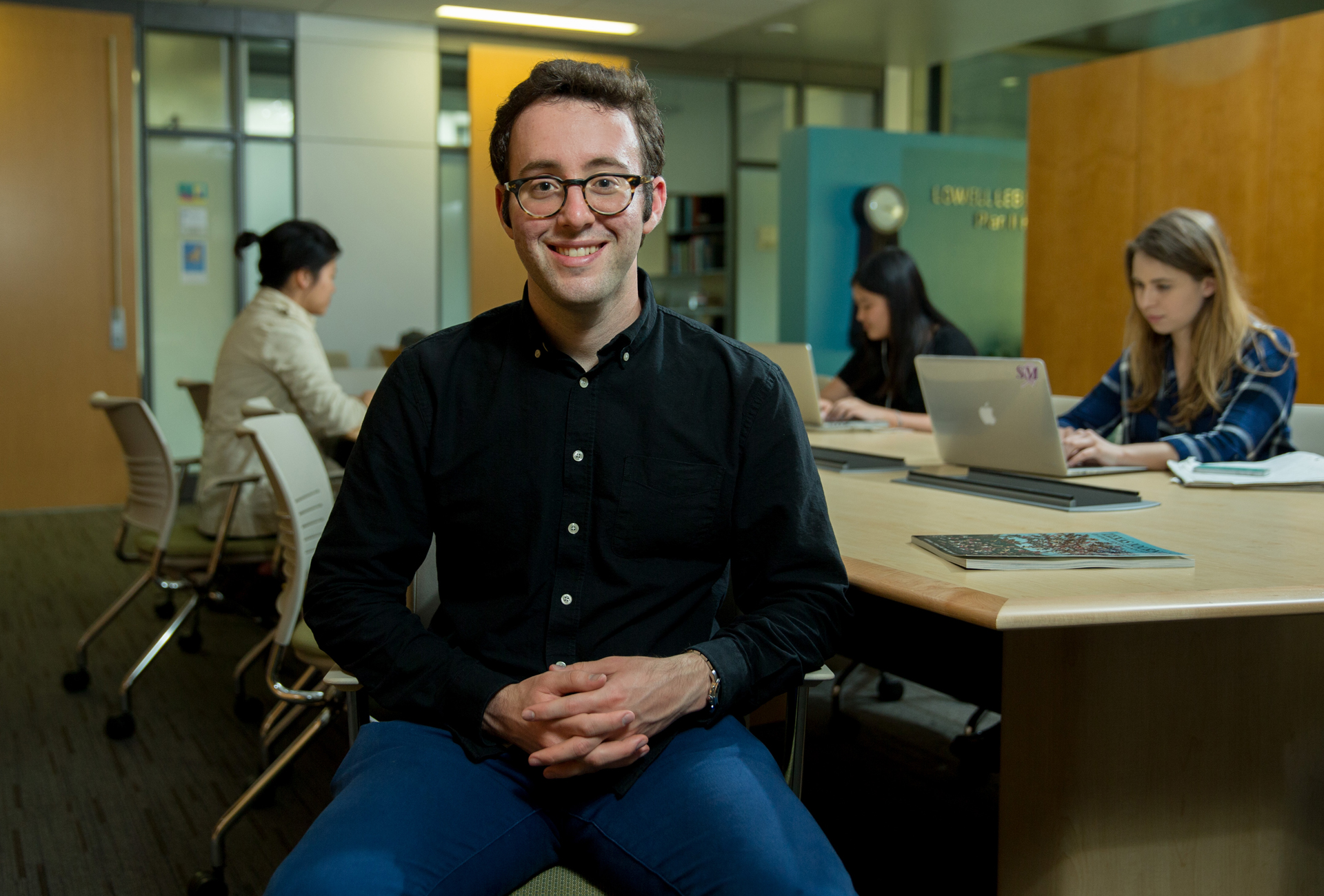Zachary Stone is a Plan II senior from Dallas, Texas. He has served as the chief justice of UT Austin’s Student Government, been published in the Sunday edition of The New York Times and will be attending the UT Austin School of Law on a Massey Scholarship, the school’s top merit award.
Why Plan II?
Plan II could offer a small-college liberal arts curriculum and community without sacrificing the resources, energy and flexibility of a major resource institution. I wanted a four-year undergraduate experience with a full academic course load, which has allowed me to study a bunch of things I find interesting.
What’s been your most rewarding UT experience?
The Normandy Scholar Program. I remember going to an admitted-student event in Dallas, and Professor Stoff waxed poetic on the Normandy Scholar Program. That’s when I decided to come to UT.
You take four — now five — classes with 19 peers on the Second World War from different countries’ perspectives. Then, in May, you travel with your peers and professors to the sites you’ve been learning about — to Poland, Germany, France and the U.K. The program taught me to be a better reader and writer. I met so many close friends. It also made me consider so many ethical dilemmas and my values, because the program centers on such a complicated time in history.
How did you end up writing for The New York Times?
I was doing research for an upcoming student government debate. They were discussing the implementation of campus carry. Knowing almost nothing about guns and the handgun licensing system, I figured I could kill two birds with one stone. I took the required training course for a handgun license and then passed the test. Given that I felt like I had learned next to nothing and demonstrated a good deal of incompetency, I didn’t think the Texas standards were high enough — and I wanted to tell that story to the world.
I knew a professor of mine, Dr. Elkins (Plan II and government), had published on the Second Amendment in The New York Times back in 2012. After finding my story worth passing on, Dr. Elkins connected me with his editor. The editorial desk appreciated my perspective and published the article in the Sunday print edition and front page online.
What’s your job with the Comparative Constitutions Project?
Each week, I read about constitutional developments around the world. Stuff like amendments, referendums, press statements and high court decisions. A lot of times, it’s world leaders trying to amend constitutions to extend term limits. I pick three developments and write a short summary of each for a newsletter.
The job has helped me improve my short writing skills and informed me that even though our nation rarely touches the Constitution, countries are re-inventing the wheel every week with their supreme documents.
What’s your favorite thing you’ve written about for the newsletter?
Covering this constitutional crisis in Poland has been interesting. Out of nowhere, the Polish executive branch seriously curtailed the power of the judiciary. The EU may suspend Poland’s voting rights. It’s an extremely colorful story, and we hardly hear about it in the U.S.
What’s your proudest UT-related accomplishment?
Creating a university-wide Service “Flag” with a friend, Amy Enrione, and Dean Iverson in the School of Undergraduate Studies. Soon this project will roll out in the registration system, and UT will start encouraging and recognizing experiential, skills-based, service learning.
What advice would you give to incoming students?
It’s important to be involved on campus. As much as I owe to my professors and classmates, I’ve gotten so much from being active in the university community. I’ve enjoyed being on Faculty Council, the President’s Student Advisory Committee, multiple research teams, political campaigns, student government, debate teams and symposiums. It’s important to get outside of the classroom. I am extremely glad that four years ago, I chose Texas.
